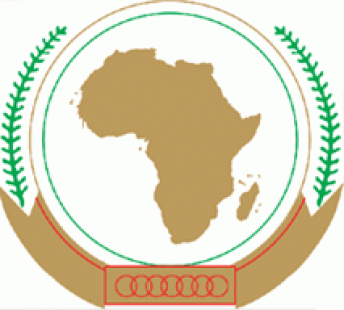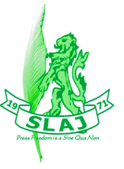World Press Freedom Day – Dep. Secretary, Ministry of Information on the media landscape in Sierra Leone
STATEMENT BY EDWARD KWAME YANKSON, ACTING DEPUTY SECRETARY, MINISTRY OF INFORMATION AND COMMUNICATIONS, ON THE MEDIA LANDSCAPE IN SIERRA LEONE AT THE WORLD PRESS FREEDOM DAY CONFERENCE HELD AT THE SKD STADIUM IN MONROVIA, LIBERIA-2ND MAY, 2012
Honourable Minister of Information, Culture and Tourism, Mr. Lewis Brown President of the Press Union of Liberia, Mr. Peter Quaqua Colleague Journalists from the West Africa sub-region Representatives from UNESCO Representative of the United Nations Mission in Liberia (UNMIL) Members of the Diplomatic and Consular corps Ladies and gentlemen;I feel honoured to be with you this morning to celebrate World Press Freedom Day, which as I speak is also being celebrated in my country. My Minister, Hon. Alhaji Ibrahim Ben Kargbo, cognizant of the significance of this day to Journalists the world over and as a Journalist himself decided that I should represent him at all costs. He did not only send me to represent him, but to extend his personal profound apology to Mr. Peter Quaqua, President of the Press Union of Liberia for not physically making the trip to Monrovia.
I will preface my statement on the media landscape in Sierra Leone by quoting His Excellency Dr. Ernest BaiKoroma, President of the Republic of Sierra Leone while addressing Commissioners of the Independent Media Commission of Sierra Leone two years ago with regards to Government’s drive to transform the State owned Sierra Leone Broadcasting Service into a Public Corporation.
“…we have created the enabling legislation, provided modern facilities, and have made great difference even in programmes…we are not going to hand over a weak institution… and over and above that, to ensure no iota of doubt is left about our sincerity, we appointed somebody who is clearly in the opposition to head the institution.”
His Excellency the President’s statement to the IMC Commissioners was further confirmed by the Minister of Information and Communications, Hon. Alhaji Ibrahim Ben Kargbo who said, “That is so far we can go as a Government. It is now your responsibility to monitor and ensure that a level playing field is created and professional standards are adhered to”. This statement from the President of the Republic of Sierra Leone and His official Spokesman and Minister of Information and Communications is a microcosm of the media landscape in Sierra Leone.
The sincerity of the Government in creating a level playing field in the democratic dispensation is demonstrated by the willingness to transform its only mouthpiece, the Sierra Leone Broadcasting Service into a Public Corporation with a Board of Trustees drawn from Civil Society, the opposition party, the youth, women and the traditional authorities. This is a historic path the Governmentof Sierra Leone has taken and I must say clearly resonates the theme for this year’s World Press Freedom Day; “New Voices: Media Freedom Helping to Transform Societies”.
The Government of Sierra Leone has created an avenue for new voices to be heard. When new voices are heard, democracy reigns and the rule of lawbecomes glaringly practical.
Protection of Freedom of Expression and the Press is entrenched in Chapter III subsection 25(1) of the 1991 Constitution of Sierra Leone which allows unhindered access to the printing and dissemination of ideas and opinions either electronically or otherwise. Consequent upon this entrenched clause in our national Constitution, our Government after our eleven years civil war has done its best to uphold the freedom of expression. No Journalist has been sent to prison for expressing his/her views on issues bordering on State Governance or killed by State actors since the Government of President Ernest Bai Koroma assumed power in 2007.
A testimony to the unfettered access to information and freedom of expressionin Sierra Leone hinges on the fact that the country currently has over 45 (forty-five) registered and functioning community radio stations, two functioning television stations and 50(fifty) registered newspapers with only one owned by the ruling party.
Sierra Leone has a proud tradition of independent media. It was the first country in English Speaking West Africa to publish newspapers namely; the Royal Gazette and Sierra Leone Advertiser. These two newspapers were first published in 1801. These publications stimulated the other British West African countries to join the newspaper business. The uniqueness of the media landscape in Sierra Leone is its plurality and this has been sustained from the colonial era to present day.
You will agree with me that during the war years the media in Sierra Leone faced a lot of challenges such as harassment from warring factions which at times led to the death of Journalists. This ugly situation led to the escape of most of the trained media professionals to America, Europe and other countries. This situation has changeddramatically after peace returned to Sierra Leone in 2002. Our colleague Journalists whowere branded as unprofessional have now benefitted from series of training programmes from either the Mass Communications Department at Fourah Bay College, University of Sierra Leone or from other non-Governmental Organizations like the Talking Drum Studio, Search for Common Ground, the BBC World Service Trust et al. Those Journalists who went abroad came back with new skills that haveradically transformed the media industry in Sierra Leone. For example the printing of coloured newspapers is now a vogue in Sierra Leone. Most of the regular and vibrant tabloids like the Standard Times newspaper, Awoko newspaper, the New Citizen Newspaper, Premier Media newspaper, The Exclusive newspaper etc. can be equaled to any western tabloid.
Government has established a media regulatory agency, the Independent Media Commission (IMC) that serves as arbiter between the Press and the ordinary citizens or in most cases public officials who are in most cases scrutinized by the Press. Ladies and gentlemen, it will surprise you to note that very few cases of defamatory libel or slander go to the courts; the IMC, because of its exemplary performance, is seen as the referee where all complaints are channeled for arbitration. In 2011, the Commission received 24 complaints against the print media and only 6 from the electronic media. In some of these cases fines were levied on the offending Journalist or the media institution that is found wanting. The dark days where public officials used their influence to imprison Journalists is now a thing of the past. Even with the existence of the much talked about Public Order Act of 1965;the Government of Dr. Ernest BaiKoromahas never used that law to victimize Journalists. The Sierra Leone Association of Journalists’ call for a repeal of Part V of the 1965 Public Order Act is under active consideration by the Office of the Attorney-General and Minister of Justice.
Mobile telecommunications has also immensely contributed to making the voice of the voiceless heard in Sierra Leone. Research has proved that almost every district in Sierra Leone has access to at least one community radio station. In each of these areas the ordinary citizens express their views about happenings in their community through uncensored phone-in programmes hosted by the Presenters. The views of the ordinary people expressed via the community airwaves serve as a catalyst for transparency and accountability in governance, particularly at the local Government level. Through the community radio stations, citizens remotely participate in the decision making process that affect their lives.
It is no secret that mass literacy in Information Communications Technology (ICT) in Sierra Leone has limited the use of social media by the youth to let their views heard. Government as a way of addressing this has developed a National ICT policy that will create the opportunity for an ICT savvy nation. In this policy, a National ICT Council chaired by no less a person than His Excellency the President of the Republic of Sierra Leone is yet a clear manifestation of the seriousness the President attaches to accessing and distributing information to the entire citizenry using modern technology. ICT we all know is the engine for growth and economic empowerment.
Few months ago, Sierra Leone landed the ACE submarine fibre optic cable which when put into active operation will make communication easier, affordable and efficient. Online reporters will now get over the frustration of using slow internet service and the citizens will also have easy access to information and an affordable cost.The submarine cable is being supported by a 660km terrestrial backbone that will connect Freetown and the border towns with Guinea and Liberia under the Ecowas Regional Backbone Infrastructure(ECOWAN), e-Government Sierra Leone Project. The ECOWAN program will deepen regional socio-economic integration and development, and facilitate trade among member States, and with the rest of the world.
I am bringing out these technologicalinnovations in Sierra Leone to demonstrate Government’s commitment to creating the enabling environment that will allow new voices to be heard through diverse media thereby contributing to the transformation of the lives of the ordinary citizens.
With the coming of the soon to be legislated Access to Information Law in Sierra Leone, President Ernest BaiKoroma is further poised on promoting transparency and accountability in governance which is a key component in his “Agenda for Change”. The Freedom of Information Law makes it easy for the ordinary citizens to seek information that affect their lives and participate in making that information useful to the transformation of the socio-economic situation of their community and the country at large.
As a Government, we are mindful of the fact that media freedom is most often undermined by the lack of information infrastructure and the technical know-how to access and evaluate information. Access to the computer and the internet is a challenge to both Journalists and the ordinary citizens. With the help of our development partners, the Ministry of Information and Communications has established Media Resource Centers in the capital Freetown and in the provincial cities of Bo in the South, Makeni in the North and Kenema in the Eastern region. These Resource Centers are equipped with Computers and internet facilities that will allow Journalists and the ordinary citizens to do research and seek information at no cost to them.
Mr. President of the Press Union of Liberia, ladies and gentlemen, I will conclude by informing this august gathering that freedom and access to Information is an entrenched fundamental human right in the Constitution of Sierra Leone and that Government is committed to upholding those values that promote good governance. My colleague Journalists from Sierra Leone will attest to the fact that every Thursday, my Ministry invites them to a Press briefing and allow them to meet face to face with Ministers and senior public officials account for our stewardship. I can confidently state that Sierra Leonean Journalists enjoy an enviable unfettered access and dissemination of information compared to any of their colleagues in the sub-region and Africa at large. I urge every Government in the sub-region to emulate this good example. I thank you.
Ministry of Information and Communication, Freetown, Sierra Leone
Stay with Sierra Express Media, for your trusted place in news!
© 2012, https:. All rights reserved.




